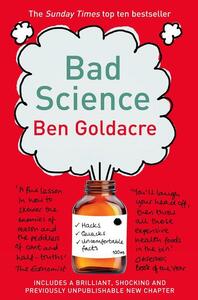You need to sign in or sign up before continuing.
Take a photo of a barcode or cover
informative
reflective
funny
informative
reflective
medium-paced
informative
slow-paced
as far as pop science goes, this one is probably tops though a little snarky for me at times in a very british way. pretty good essays that go over in simple, but not patronizing detail, the big scientific misunderstandings (MMR and autism, reading papers, stuff like that). excellent introduction for citizen scientists.
Although overly critical (less sarcasm more constructive criticism) at times for my taste, a must read for a range of: from people that wish to better judge "science has shown" articles to scientists wishing to improve the rigor of their methods.
This book did a good job of explaining what practices can signal "bad science" and how the average consumer can spot them when consuming media or purchasing products. I liked that he gave specific examples and case studies, although some where left on cliffhangers and I wanted to know the end results of the case. I'd love to see an update with some more recent examples, especially from the COVID-19 pandemic.
Yes this is an incredibly important and helpful book, I just wish the author had a bit less personal beef to talk about (and also that his hatred of the humanities wasn't quite so obvious).
funny
informative
slow-paced
HUGE recommend for anyone who wants to be more statistically literate!



